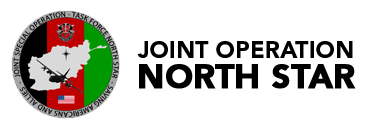
Program Costs
Costs of Protection in Afghanistan
As a volunteer organization, Operation North Star has zero paid staff, zero overhead, and all administrative costs to date have been paid by our volunteers. All donations go straight to the protection and evacuation of vulnerable Afghans.
-
Food and Safe Houses
Afghans protected by Operation North Star cannot go out to buy groceries, as they are likely to encounter checkpoints or even be recognized given their stature, so we have to provide them with food so they do not need to leave the safe house. It costs hundreds of dollars per month to feed and safely shelter a single Afghan family.
-
In-Country Travel
It is often necessary to move large groups of these vulnerable Afghans around the country to pre-position them for flights that may become available on only hours’ notice, or because certain locales become so insecure that large groups have to be moved en masse to keep them safe. These bus charters cost $375 for a bus of 28 people, or $1,100 for a bus of 55 people.
-
Air Travel
Securing seats on privately chartered flights can cost between $500 and $1,500 per seat. Chartering a 340-person flight on our own or in conjunction with other organizations can cost $700,000 per flight. With small children on laps, these planes can hold between 380 and 400 people.
If you are interested in donating to help protect our Afghan allies, click the button below.
Cost of Humanitarian Parole Sponsorship
Many of the families we are housing have Special Immigrant Visa (SIV) or U.S. Refugee Admissions Program (USRAP) applications in process, which provide a path to U.S. citizenship. However, both processes can take years, and some of our allies are in imminent danger. The Taliban are actively hunting these families, many of whom may not survive in Afghanistan while they wait for their applications to process.
The United States has a provision for admitting foreigners for “humanitarian reasons or significant public benefit,” called humanitarian parole. Parolees may stay in the United States for the time it takes for their SIV/USRAP application to process, typically 1 to 2 years. By contrast, the humanitarian parole application process is months long. Applications for humanitarian parole must be completed for each family member, regardless of age, and each requires an application fee of $575.
On September 30, 2021, Congress authorized any Afghans paroled into the United States before September 30, 2023, to receive refugee resettlement benefits. These include cash assistance through Supplemental Security Income (SSI) or Temporary Assistance for Needy Families (TANF), Supplemental Nutrition Assistance Program (SNAP), or health insurance through Medicaid. But each state sets its own eligibility requirements and timeframe.
Despite this change, humanitarian parole applications still require a financial sponsor, which may be an individual, group of individuals, or an organization, such as a place of worship or a non-profit. The sponsor must provide financial records proving that they have income or assets equivalent to sufficiently support the family they are sponsoring. There are no clear guidelines defining sufficiency. However, it is commonly interpreted to mean funding at 100 percent or more of the federal poverty guidelines. For perspective, according to refugee resettlement experts, it would cost approximately $25,000 per year to support an individual in an inexpensive American city, $35,000 per year to support a family of four, and $53,000 to support a family of eight—all excluding healthcare costs.
Put another way: Afghan parolees are now eligible for resettlement benefits—reducing the financial burden on their sponsors—but sponsors still must demonstrate an ability to sufficiently sponor Afghan parolees. Further, a sponsor’s pledge to support their parolees is not legally enforceable. According to the State Department’s Foreign Affairs Manual: “The [humanitarian parole sponsorship] affidavit, submitted by the applicant at your request, is not legally binding on the sponsor.”
In other words, the standards are vague and the relevant legal requirements are evolving. What is not changing, however, is that these vulnerable Afghans need Americans who are willing to financially support their presence in the United States while their various residency applications run their course.
If you are interested in learning more about sponsoring a family, or would like to learn more about the backgrounds of the families we are protecting, click the “Contact Us” button below. If you would like to donate, click the “Donate Now” button below.
